Sybille Schmitz
Nacimiento : 1909-12-02, Düren, Germany
Muerte : 1955-04-13

Self (archive footage)
A documentary of the life of German actress Sybille Schmitz (1909–1955) who rose to prominence in the German cinema of the 1930s and whose final years were used as the basis for Rainer Werner Fassbinder's 1982 film 'Die Sehnsucht der Veronika Voss'.

Anna
The story takes place in a town on Adriatic coast. Mother wants to marry her daughter to a wealthy doctor, but her plan proves to be challenging as they're both seduced by a handsome smuggler.

Maria Alsbacher

Eva Skeravenen
As foreign troops occupy the country, the government commissions a jeweler to bring the crown jewels to safety.

Vera Gordon

Susanne Gruber

Renée Meurier
Set in German-occupied France in 1944 where a female resistance operative and a German army officer fall in love.
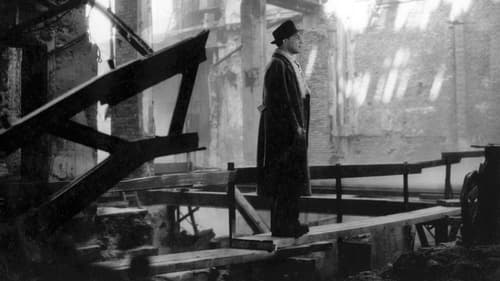
Nelly Dreifuss
A group of people gathers back in the post-war ruins of a luxurious Munich hotel they inhabited at one point or another years before; each trying to cope with the tragic consequences of the war and their own actions.

Hella Warkentin

Thea Varèn
A fake countess falls in love with an honest man.
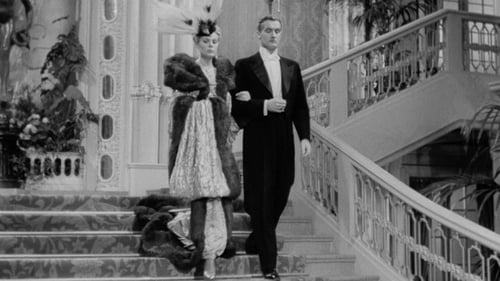
Sigrid Olinsky
La construcción del Titanic, ha sido un esfuerzo enorme para la naviera White Star Line. Su presidente Sir Bruce Ismay, intenta sin atender a razones batir el record de velocidad en el viaje inaugural para obtener la confianza de los inversores. Pronto hay señales de peligro. Film de propaganda nazi que adapta libremente los populares hechos de 1912, en los que el Titanic se hundió en las aguas del Atlántico.

Dr. Virginia Larsen

Barbara Stammer

Clarissa von Reckwitz

Prinzessin Deinartstein
Film about the fictitious adventures of Franz Freiherr von Trenck, who lived during the times of empress Maria Theresia of Austria garnished with espionage and twisted love affairs.

Eva
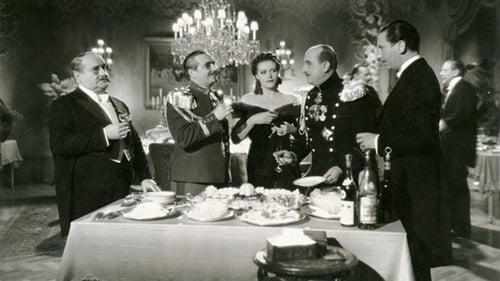
Nadja Woroneff
Vienna is celebrating New Year’s Eve 1913/14. It is the year, which will see the outbreak of the First World War. In Hotel Sacher, the mood is excellent; and although the political atmosphere is charged, there’s an undercurrent of hate and intolerance in the air. It is with this background that Nadja, a Russian spy, meets the Austrian civil servant Stefan. He loves her, but comes under suspicion of being an agent because of this love.

Gräfin Héloise Cambouilly
Paris, 1830: Jean-Gaspard Debureau performs on the stage and delights his audience with song, wit and charm. He is, however, very unpopular with King Charles X, who is the target of much of Debureau's scornful jests. That would be a somewhat tolerable situation if it weren't for the fact that Debureau has fallen for a countess, who happens to be the King's mistress.

Gast
German all-star musical from 1938 that was a big commercial success.
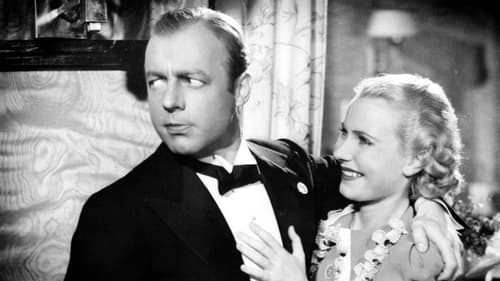
Lu Donon - Tochter

Brigitte von Schachen

Jelena Rakowska

Madeleine
The body of an unknown beautiful woman is fished out of the river and leaves the policemen wondering what drove the girl to such a grisly fate. The film then flashes back to months before, showing the torrid love affair between a young cabaret singer and a rich playboy that ultimately results in tragedy for the girl.

Anna Demidow
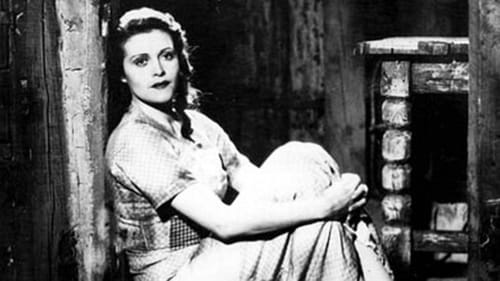
Maria
A beautiful young drifter comes to a small village and battles Death itself to save the man she loves.

Winifred Montemayor
The jealous star conductor Montemayor knows that his beautiful younger wife, Winifred, is cheating on him with an American named Jack Mortimer. After the concert rehearsal, he takes a taxi to the train station, sees Mortimer and shoots him at an intersection from the backseat of his taxi. The shot is not heard during the traffic noise. The taxi driver, Sponer, sitting in his car with the now-dead Mortimer, goes into a panic.

Ilonka Badacz

Gloria Cheveley
Sir Robert Chiltern is a successful Government minister, well-off and with a loving wife. All this is threatened when Mrs Cheveley appears in London with damning evidence of a past misdeed. Sir Robert turns for help to his friend Lord Goring, an apparently idle philanderer and the despair of his father. Goring knows the lady of old, and, for him, takes the whole thing pretty seriously.

Maria Belloni

Britta Geistenberg

Erna Zuwade, Stütze bei Wenkstern

George Sand

Vilma, seine Frau
A German scientist designs and builds a machine that will do dangerous work instead of placing humans in jeopardy. But the machine itself turns out to have disastrous effects on the people involved.

Carola, seine Nichte

Sportfliegerin Lisa Holm
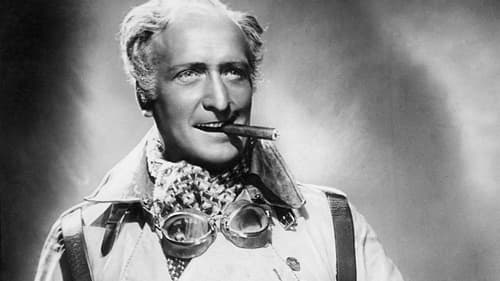
Claire Lennartz
F.P.1 is a huge airplane landing dock in the Atlantic where pilots making the transatlantic flight can stop. Yet a saboteur tries to sink the technical wonder in this classic German science fiction film from 1932. The film was also created with English and French speaking actors at the same time.
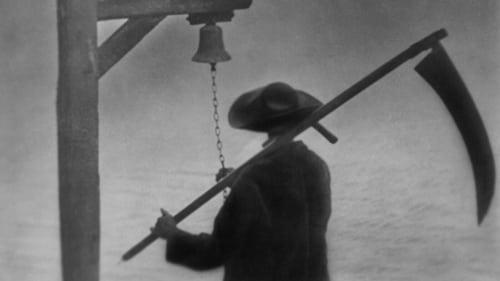
Léone
En esta película Dreyer nos introduce en un universo fantasmagórico por medio de imágenes expresionistas. Un joven viajero, Allan Gray, se aloja en un extraño castillo, cuya atmósfera densa y enrarecida recuerda la de las pesadillas. El joven comienza a tener espeluznantes visiones, de las cuales la más terrible es el descubrimiento de una mujer inconsciente que ha sido atacada por un vampiro en forma de bruja. El maestro Dreyer rueda en Francia esta personal visión del terror: un mundo onírico y sugerente, lleno de fantasmas y sombras que cautivan más por la fuerza de las imágenes que por lo terrorífico del relato. A pesar de que actualmente es considerada una obra maestra del género, en su día fue un rotundo fracaso, por lo que el director danés tardaría doce años en volver a rodar su siguiente película, "Dies Irae".
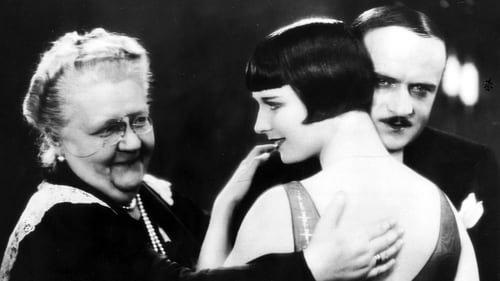
Elisabeth
Tres páginas de un Diario, estrenada en septiembre de 1929, fue la segunda versión cinematográfica de la novela "Diario de una Perdida" de Margarethe Bohme. Curiosamente, la primera fue interpretada en 1918 por Erna Morena, actriz que un año antes había protagonizado "Lulu", adaptación de la obra de Frank Wedekind que fue, también, el título que unió por vez primera al realizador alemán G.W. Pabst y a la actriz norteamericana Luise Brooks: La Caja de Pandora (Lulú), estrenada en enero de 1929. Estos dos títulos, junto a "Crisis" (1928), integran lo que se conoció como la "trilogía erótica" de Pabst, lo que puede dar una pista de los problemas de censura y distribución que tuvieron en su momento ambos films.

The struggels of the German proletariat over the course of several centuries. Propaganda film by the Social Democratic Party.

A tense vignette about the fate of an unlucky man in poverty-stricken Weimar-era Germany.
















